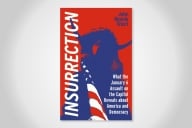You have /5 articles left.
Sign up for a free account or log in.
Three years ago Peter Burke published The Polymath (Yale University Press), an illustrated history of what are usually called Renaissance men or women. Burke, an emeritus professor of cultural history at the University of Cambridge, defines polymaths as having “interests that were ‘encyclopedic’ in the original sense of running around the whole intellectual ‘course’ or ‘curriculum.’” The label certainly applies to Leonardo da Vinci—although he also shows the contrast between interdisciplinary scholarship and Renaissance virtuosity. The latter also requires some combination of artistic creativity, practical skill and inventiveness, as observable in Leonardo’s command of anatomy, painting, drawing, mathematics, architecture, engineering, music and military science (to keep the list short).
Burke lists 500 polymaths from the past six centuries (with a scattering of true Renaissance-model geniuses, such as Benjamin Franklin and Emanuel Swedenborg) and devotes his book to finding patterns among them. He makes the interesting suggestion that polymaths do not reject the necessary role of specialists in producing knowledge but complement it by making connections across the disciplinary boundaries. That seems likely. But the fascination of reading about polymaths also derives, in large part, from the sheer mental exuberance they display.
The polymath embodies a greater intensity of attention than the non-polymathic norm. “An overdose of curiosity, long known as the libido sciendi and described by the polymath Francis Bacon as ‘inquisitive appetite,’ is surely the most general as well as the most obvious characteristic of the species,” writes Burke.
His new book, Ignorance: A Global History (Yale University Press), pivots to the complete antithesis of “inquisitive appetite.” As discussed in this column 15 years ago, a whole body of interdisciplinary scholarship now focuses on questions of ignorance: its varieties, sources and consequences. Last year saw the arrival of the second edition of the Routledge International Handbook of Ignorance Studies, updated from the 2015 original. Clearly it is a growing field.
Burke notes that while the Routledge handbook has 51 contributors, not one of them is a historian, a situation that has not changed in the new edition. Besides trying to fill a gap in the literature with a broad historical narrative, Ignorance is a call for his colleagues to pursue their own investigations. “Many have referred to ignorance in passing,” he writes, “but few have yet placed it at the center of their enquiries.” But for his part, Burke regards the work of social scientists and philosophers who refer to the “the ‘production’ or ‘fabrication’ of ignorance … [or to] ‘strategic’ ignorance” with skepticism. In place of notions of ignorance as socially constructed, he prefers “to remain close to ordinary language whenever possible” and opts “for a relatively narrow definition of ignorance as absence”—a vacuum of knowledge or information, so to speak.
What this understanding yields in practice is a series of general essays treating ignorance from two general perspectives. One looks at the concepts and metaphors used to characterize ignorance and how they relate to knowledge that (eventually) fills the void. Ignorance depicted as a “cloud” or “fog”—or as a form of blindness or immaturity—accompanies any grand narrative of Enlightenment: the advancement of learning then figures as a spreading of light, a curative treatment or progress into a higher stage of development. More specific forms of ignorance follow from the social distance between groups: between men and women, or missionaries and “natives,” or layers of a complex organization.
Burke’s second set of case studies focuses on the fundamental role of ignorance in any number of endeavors such as war, business and governance. Military conflict involves “planning for the future despite knowing that the future will not go according to plan,” and the “fog of war” (uncertainty, at any given moment, concerning the position and strength of the forces in combat) presumably derives from literal clouds of smoke on the battlefield. More generally, this portion of the book concerns situations where one side in a transaction will benefit from reducing its own ignorance and/or increasing that of the other side.
In his book on polymathy, the author posed the idea that it might be an almost paradoxical side effect of the specialization in academic research. His consideration of the history of ignorance points out another set of unintentional consequences:
“The rise of new knowledge(s) over the centuries has necessarily involved the rise of new ignorance(s). Collectively, humanity knows more than ever before, but individually, we do not know more than our predecessors.”
Thus does Burke complicate his otherwise straightforward definition of ignorance as a sort of naturally occurring absence of knowledge—while still keeping a distance from those who pursue, in his formulation, “what they call ‘agnotology,’ the study of the ways in which ignorance is produced or maintained, as opposed to ‘agnoiology’ the study of ignorance in general.”
The agnoiologists will presumably be receptive to Burke’s common-language notion of ignorance. At the risk of stumbling into a turf war, I have to point out that the agnotologists are clearly right to press for a more active concept of ignorance. Ignorance can be—and is—produced, cultivated, monetized. Aggressive and demanding varieties of it have emerged and are, in some places, taking control of curricula. Burke prefers to think of deliberately propagated ignorance as a matter of deception. And often enough it is—so fair enough, up to a point. But it must not be generalized beyond its suitability.
Consider the re-emergence of beliefs about the flatness of the earth and the sun’s rotation around it. Adherents to this view form a subculture that is entirely too dynamic, and cannot be explained as a matter of deception, apart from self-deception. The odds of profiting or benefiting from persuading anyone of flat-earth doctrine seem very long. And the adherents sometimes exhibit the aforementioned “inquisitive appetite” piqued by calls to “do your own research.”
The libido sciendi can take perverse forms. It is not that valid knowledge is unavailable. Ignorance has simply rejected it—crowded it out with preferred alternatives, using powerful tools for disseminating information to destroy a real understanding of things. The history of ignorance will be of value to the extent it helps us comprehend the forms it is assuming in the 21st century.







.png?itok=EI7fjJWW)
.png?itok=T2F0dmM8)